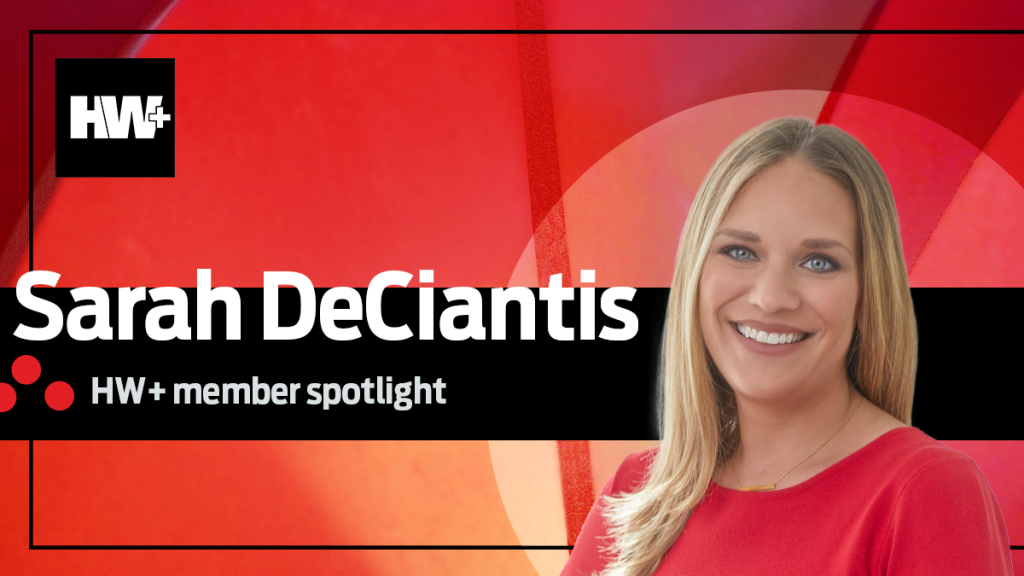Mortgage – HousingWire |
- Originators gear up for the purchase market
- HW+ Member Spotlight: Sarah DeCiantis
- The secondary market is primed to rise in 2022
| Originators gear up for the purchase market Posted: 31 Dec 2021 09:00 AM PST  This article is part of our HousingWire 2022 forecast series. After the series wraps early next year, join us on February 8 for the HW+ Virtual 2022 Forecast Event. Bringing together some of the top economists and researchers in housing, the event will provide an in-depth look at the predictions for next year, along with a roundtable discussion on how these insights apply to your business. The event is exclusively for HW+ members, and you can go here to register. At the onset of the Coronavirus pandemic, the mortgage industry was preparing for absolute disaster. Mortgage executives held emergency meetings with their creditors over worst-case scenarios. Banks and non-banks alike discontinued programs, laid off thousands of staffers, raised credit standards for borrowers and buckled up for what they expected would be a very rocky ride. Few in mid-March could have predicted that a perfect storm of ultra-low interest rates, new migration patterns and historic government intervention wouldn't just save them, but line their pockets with billions of dollars and change their entire trajectory. But many of those elements are fading as the industry heads into 2022. Notably, the Federal Reserve said it would begin tapering its asset purchases starting in November. The central bank is also expected to raise short-term rates in upcoming quarters. "Mortgage lenders and borrowers should expect rising mortgage rates over the next year, as stronger economic growth pushes Treasury yields higher," said Mike Fratantoni, the chief economist at the Mortgage Bankers Association. Fratantoni's organization is forecasting mortgage rates to gradually climb over the course of 2022, ending the year at 4%. Those higher rates will force lenders to make major operational changes. Refinancing’s represented nearly two-thirds of mortgage loan originations in the first three quarters of 2021, and total refi volume for the year was projected to reach north of $2.2 trillion, according to the MBA. In 2022, refi origination volume is expected to drop by 62% to about $860 billion. The name of the game in 2022 will be purchase mortgages, which the MBA projects will grow 9% to a record $1.725 trillion. But the boost in purchase business likely won't be enough to prevent operational contraction: As margins shrink, lenders will likely have to lay off staff and renegotiate compensation. Lenders will have to "manage expenses and improve customer service in a purchase market," Tom Wind, executive vice president of consumer lending with U.S. Bank Home Mortgage, said at the MBA Annual convention. One of the ways that lenders "manage expenses" has historically been by laying off processors and loan officers. Yearly data compiled by the MBA found that in 2014 and 2018, years with weaker origination volume, the LO turnover rate was 44% and 37%, respective-ly. Meanwhile, in 2020, LO turnover was the lowest in the survey's history, at 21%, the MBA found. The second-lowest LO turnover rate was in 2003, at 31%. Marina Walsh, vice president of industry analysis at the MBA, said that as production volume slumps and the market shifts toward fewer refinances and more purchase activity, "competition will further stiffen." "In this environment, lenders can only chase market share for so long before there are substantial consequences to the bottom line," she said. Industry experts also predict that home inventory will increase in 2022, creating more options for borrowers. "Homebuilders will have more success overcoming current building material shortages and should be able to increase the pace of construction to meet the sizable demand for buying," Fratantoni said. He added, "More newly built homes and more home-owners listing their homes for sale should lead to some deceleration in home-price growth next year. This is good news for the many would-be buyers who are currently priced out or delaying decisions because of low supply conditions and steep home-price appreciation." Moreover, Walsh predicts that in a purchase-heavy market lenders will turn "more heavily to their servicing business to achieve financial goals." "Higher mortgage rates mean fewer prepayments and a longer revenue stream of servicing fees combined with higher mortgage servicing right valuations," Walsh said. "However, the servicing outlook is more complicated today, with the expiration of many COVID-19-related forbearances and the need to place borrowers into post-forbearance workouts. "Servicing costs may rise as servicers work to meet the needs and requirements of borrowers, investors and regulators," she added. Lenders and servicers will also need to be mindful of the new regulatory climate under the Biden administration. In October, Rohit Chopra took over as director of the Consumer Finance Protection Bureau. He appeared in front of Congress a few weeks later and testified that the CFPB would be looking closely at mortgage servicing, monitoring the mortgage market and making sure that "firms can't dodge fair lending laws and anti-discrimination laws under the guise of their secret algorithm." "I am very worried about black-box algorithms that have no accountability for how decisions are made," Chopra told the House Financial Services Committee. Chopra has also beefed up the agency's enforcement division and partnered with two other regulators to target lenders engaging in what was termed by the government as "modern-day redlining." The three agencies announced a settlement with a Mississippi-based lender who allegedly engaged in the discriminatory practice, and promised that more will follow. This article was first featured in the Dec/Jan HousingWire Magazine issue. To read the full issue, go here. The post Originators gear up for the purchase market appeared first on HousingWire. |
| HW+ Member Spotlight: Sarah DeCiantis Posted: 31 Dec 2021 06:00 AM PST  This week's HW+ member spotlight features Sarah DeCiantis, chief marketing officer at United Wholesale Mortgage. As a 2019 Vanguard and Women of Influence, DeCiantis is the catalyst behind United Wholesale Mortgage's strategic approach to marketing, which has helped the company become the No. 1 wholesale lender. DeCiantis oversees advertising, public relations, social media, creative and customer relationship management that has established the company as the gold standard of the wholesale mortgage industry. DeCiantis prides herself on truly being in the weeds in all aspects of UWM marketing, as she regularly meets with clients to help assess their goals from a marketing perspective so UWM can help them grow their business, stressing the importance of building a strong social presence and driving business through content. Below, DeCiantis answers questions about the housing industry: HousingWire: To start off, what is your current favorite HW+ article? Sarah DeCiantis: This is tough! I love them all and think HousingWire does a fantastic job keeping readers, like myself, up to speed on industry news and trends. One article that sticks out is “Mortgage industry cheers Sandra Thompson's nomination,” by Georgia Kromrei. I love that it showcases the support of a strong senior female leader in the industry, and think Georgia did a great job capturing perspectives from a variety of industry leaders and organizations. HousingWire: When do you feel success in your job? Sarah DeCiantis: My success is based upon whether or not my team is happy and thriving. As a leader, I will always push and strive to do more, get better, take on new challenges and hit goals, but success comes in the form of making sure those around me are happy, fulfilled and continuously growing. At the end of the day, you're only as good as your team, and it's my job to ensure I'm providing them with what they need to be the best possible versions of themselves, personally and professionally. It's simple – if they're not successful, I can't be successful. Team is everything. HousingWire: What's the best piece of advice you've ever received? Sarah DeCiantis: The best piece of advice I've ever received is to be kind 100% of the time. It's nothing new or groundbreaking, and something we learn to do as a child, but many people lose sight of this basic fundamental. You never know what someone is going through, so whether it is a colleague, friend or stranger, your kindness has the ability to make a significant and positive impact on those around you. HousingWire: What are 2-3 trends that you're closely following? Sarah DeCiantis:
HousingWire: What do you think will be the big themes for the housing market in 2022? Sarah DeCiantis: Without a doubt, we're going to see the wholesale channel grow exponentially in 2022 and beyond. As rates tick up, and refinances slow down, more and more retail LOs are going to switch over to the wholesale channel. With the growth of the independent mortgage broker channel, we will also see an increase in consumers across the country better understanding the benefits of working with an independent mortgage broker. Specifically, they will become increasingly aware of how personalized experiences, local expertise and speed to close can positively impact their monthly payment and closing costs. To become an HW+ member, click here. For more information on HW+ benefits, click here. To view past issues of our HW+ exclusive HousingWire Magazine, go here. The post HW+ Member Spotlight: Sarah DeCiantis appeared first on HousingWire. |
| The secondary market is primed to rise in 2022 Posted: 30 Dec 2021 09:00 AM PST  This article is part of our HousingWire 2022 forecast series. After the series wraps early next year, join us on February 8 for the HW+ Virtual 2022 Forecast Event. Bringing together some of the top economists and researchers in housing, the event will provide an in-depth look at the predictions for next year, along with a roundtable discussion on how these insights apply to your business. The event is exclusively for HW+ members, and you can go here to register. Projecting the outlook for the housing market in the coming year, including prospects for the secondary market for mortgage-backed securities, can be an exercise in crystal-ball gazing, but one indicator key to bringing clarity to that crystal ball is the direction of interest rates. All signs point to continuing upward pressure on interest rates in 2022. Assuming COVID-19 is managed well, the overall economy is expected to continue expanding, with that growth and the still-unwinding pandemic-related supply-chain issues helping to fuel inflation. To address those pressures, the Federal Reserve has signaled it will pursue monetary policy that pushes interest rates up modestly over the course of the next year. "The economy is steadily recovering, and inflation is kicking higher," said Lawrence Yun, chief economist at the National Association of Realtors. "Mortgage rates will steadily rise, possibly to 3.3% by the year-end [2021] and maybe even as high as 3.7% by the end of 2022." With rates rising, housing-finance experts expect the focus to shift away from the refinance market and toward purchase loans. That bodes well for those engaged in trading whole loans and mortgage-servicing rights (MSRs), both of which are bought and sold in the secondary market. "As the economy begins to show improvement and moratoriums are lifted on foreclosures, the forecast is for the re-performing loan market to maintain a high volume for many months to come," said Tom Piercy, managing director of Incenter Mortgage Advisors. "The jumbo-loan market has expanded too as we've seen property values increase nationwide. It's difficult to quantify per se, but the appetite for jumbo loans has increased significantly." On the MSR front, the market also is expected to remain robust as interest rates rise, which increases MSR values. That's because loan prepayment speeds slow when refinancing ebbs. Fewer loan prepayments via refinancing ensures that MSR assets — which represent a slice of the interest on a mortgage — will have a longer cash-flow life for investors. "I believe the first and second quarters next year will be quite busy," said Azad Rafat, MSR senior director at Mortgage Capital Trading Inc. As rising interest rates cool the refinance market, replacing that lost volume through home-purchase loan growth will be largely dependent on expanding the guardrails around mortgage origination, some industry veterans argue. John Toohig, managing director of whole loan trading at Raymond James, said as rates inch upward, closer to 4%, originators will be under pressure to find more volume outside refinancing and the con-forming-loan space dominated by Freddie Mac and Fannie Mae. If that happens, Toohig said, it will provide a "natural boost for private-label securitization" — which is the private-sector secondary market that issues and sells securities without government guarantees. "Can you find more volume in a bank-statement loan or an asset-depletion loan?" Toohig asked. "There's non-QM, or can you go to that Jumbo 2.0 loan, and instead of a 700 FICO [credit] score, can you make it work at 660 or 680? "Are you willing to do that? Can you maybe look at 85% as opposed to an 80% loan-to-value [ratio]? That's going to be where you're going to have to find your loan growth if we agree that we're in a rising-rate environment." Overall, for investors in the secondary market as well as for the host of industry players in the owner-occupied and rental housing markets, 2022 should be a strong year, said Rick Sharga, executive vice president of marketing for RealtyTrac. It will be driven by demographics — specifically the millennials, most of whom are now coming of age as first-time homebuyers, Sharga said. But the one factor that could undermine a robust economy in 2022 is inflation. "The thing that could derail us is if we had an economic downturn, and the most likely scenario I see there is that inflation continues to run hotter than the Federal Reserve would prefer," Sharga said. "Typically, historically, when the Fed hits the brakes, it tends not to be a smooth, controlled stop, and [the economy] can slide off to the side of the road." The changing mortgage-finance environment and the unknowns ahead also highlight the need to address perennial issues in the housing market, chief among them risk management and housing- finance reform. "House prices have been continuing to soar, but the GSEs, still backed directly by the taxpayers, continue to dominate the secondary market," said Ed DeMarco, president of the Housing Policy Council, a group at the center of those discussions. "The Fed also is sending signals of a general expectation of rising interest rates, which presumably will cool the refinance market… And so, you take these things together, we think that paying attention to the risks in the marketplace is essential." Among the tools that DeMarco said will be key in dealing with the distribution of risk in the year ahead is the GSEs' use of credit-risk transfers, as well as data standardization and transparency, the common securitization platform as well as the modernization of Ginnie Mae. And essential to promoting the future growth of a vibrant private-label market for issuing and selling residential mortgage-backed securities, DeMarco added, is getting Congress to act quickly on better defining the contours of the government's space in the mortgage market. "Congress can set the parameters for the future — not just what is the government's role, but where that role ends," said DeMarco. "That will allow the private market to have greater certainty about investments that it can make in this space." This article was first featured in the Dec/Jan HousingWire Magazine issue. To read the full issue, go here. The post The secondary market is primed to rise in 2022 appeared first on HousingWire. |
| You are subscribed to email updates from Mortgage – HousingWire. To stop receiving these emails, you may unsubscribe now. | Email delivery powered by Google |
| Google, 1600 Amphitheatre Parkway, Mountain View, CA 94043, United States | |

No comments:
Post a Comment